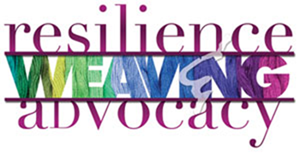 We believe very strongly that interprofessional teams provide the best care, especially for older people with serious multiple chronic conditions. In direct care as a geriatric social worker, I worked very closely with physicians, psychiatrists, nurses, physical therapists, as well as home health aides and family caregivers. It never occurred to me that my colleagues in other disciplines might not know what a social worker contributes to the team.
We believe very strongly that interprofessional teams provide the best care, especially for older people with serious multiple chronic conditions. In direct care as a geriatric social worker, I worked very closely with physicians, psychiatrists, nurses, physical therapists, as well as home health aides and family caregivers. It never occurred to me that my colleagues in other disciplines might not know what a social worker contributes to the team.
But recently, I had a conversation with a very knowledgeable physician who asked: “What is the difference between a nurse and a social worker?” I was also dismayed that the InterProfessional Education Consortium (IPEC) did not initially include the discipline of social work, but after Hartford’s strong advocacy it now does. And because of the Hartford Foundation’s sponsorship, social work is now included in the Institute of Medicine Global Forum on Interprofessional Education.
So, in honor of the closing of Social Work Month this March, I would like to bring attention to the important role of my fellow social workers.
The National Association of Social Workers (NASW) gives the following description of the profession and the powerful role social workers play in supporting individuals and families:
Social Work is the profession of hope—fueled by resilience and advocacy. Social Workers matter because they help millions of struggling people every day dream differently.
In the United States, more than 650,000 of these highly trained professionals know how daunting and immobilizing life’s tragedies and obstacles can be. But they also witness the sheer determination of countless individuals and families to achieve different lives. Sometimes, all it takes to help people get on the right path is guidance toward what is possible. Other times, social workers are an immediate lifeline in crisis—providing access to resources and new life options.
Those served by social workers possess many strengths that keep them fighting for a better future despite personal and systemic barriers to success. They climb toward what is possible rather than simply accepting what the current situation may be. Professional social workers help combine these client strengths with effective personal and public advocacy.
It is with these concepts in mind that NASW has announced the theme for Social Work Month 2013 as “Weaving Threads of Resilience and Advocacy: The Power of Social Work.”
Now more than ever before in health care delivery, the profession of social work is needed. As health care systems are being held accountable for the continuum of care of discharged patients in order to avoid penalties for 30-day hospital readmissions and emergency room visits, knowledge of, and experience with, community-based social services will be incredibly valuable.
Social workers in community-based organizations provide person-centered care and focus on solutions for issues related to social determinants of health, such as lack of financial resources and social isolation, which contribute to the revolving door syndrome of re-hospitalizations. Social workers—whether in the community, hospital, or other institutional settings—coordinate with caregivers and community resources to broaden the circle of team care which ultimately provides a more comprehensive and continuous care plan.
At the Hartford Foundation, we are moving away from funding in the silos that separate the health care professions and will engage in more work to support health care for older people in interdisciplinary teams. I want to make sure those teams understand the critical role of social workers and keep their doors open to including them. As NASW states, social workers will help weave all the threads that are important to sustaining the resilience of our older people with serious multiple chronic conditions. Who wouldn't want to include the expert helping hands of social workers to assist in providing care to these complex older patients?
